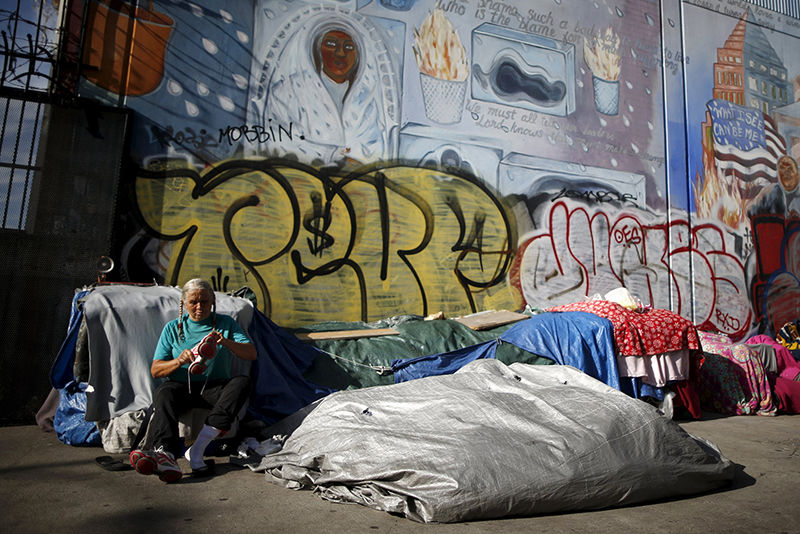I am still trying to get my mind around this year’s election.
People have been asking me: What’s going on in America? I’m not sure I have the answers. But I’ve been praying, reading and thinking a lot about the question. These are some initial reflections.
What strikes me first is that many important issues are not being discussed — beginning with the ongoing daily injustice of abortion, the killing of innocent unborn children, which in recent years is being aggressively promoted as a fundamental “right” that trumps every other right and consideration in our society.
In no particular order, here are some other issues that are on my heart but don’t see being talked about by candidates in any meaningful way:
› Homelessness and joblessness, especially in minority communities; the crisis of affordable housing in our major cities;
› Continued evidence of racial injustice in our society;
› The injustice of the death penalty; the conditions in our prisons and inequities in the ways we define crimes and punish those convicted;
› The growing promotion of euthanasia and assisted suicide;
› The denial of rights to farmworkers and other low-income and undocumented workers.
And there are more.
Christians face genocidal persecution in the Middle East and Africa, and there is a dramatic undermining of religious freedom and the rights of conscience going on here in the United States. Where is the discussion in this year’s elections?
Developments in warfare in recent years — the use of drones, how we choose “targets” and define “enemy combatants” — all raise sharp moral issues. Yet no one is discussing these issues, either.
As I reflect on this election, I see an America that is pulling apart and is increasingly divided by money, privilege and social class interest.
This is most obvious in the widening gap between those in our country who are prospering and those who are barely getting by. The distance between these groups is not only economic, it is cultural. It is a distance also of education levels, race, neighborhoods and family backgrounds.
Many of those at the “top” of American society — elites who govern and control the economy, media and education — now seem to be living in another America, disconnected from the struggles of the people below them. Many even seem to look down on ordinary Americans — as if their privileged status somehow makes them “better.”
Obviously, this does not apply to everybody. I see extraordinary generosity and acts of kindness from wealthy and influential people all the time, as I do from countless ordinary Americans.
But there is no denying that these divisions exist in American life. And they are growing as work, finance and the production of goods and services becomes more globalized.
This fracturing of America is one of the sources for the “anti-establishment” frustration we see in this year’s elections. Millions feel like they are living on the edge — vulnerable, powerless and abandoned by their leaders. As if their lives don’t matter.
And it is a deeply troubling fact that the families of those in charge do not have to live with the consequences of some of the policy decisions they make. We have come to accept an America where schools and infrastructure are crumbling, and where drinking water is contaminated — not in neighborhoods where the elites live, but only in the communities of minorities and the poor.
At the heart of the discontent in American life, I see a confusion about the human person.
All the conversation and debate about identity and ethnicity is only masking a fundamental problem in our society — we don’t know anymore who we are, where we came from or what we are made for. We don’t know what it means to be a human person.
Democracy cannot stand without a proper understanding of the human person.
Government exists to serve the person and to ensure the conditions in which persons can grow and flourish. If we don’t know what a person “is” or what a person is “for,” we risk becoming a society in which men and women are turned into material instruments to be exploited.
It is clear that we need a new politics — a politics of the heart that emphasizes mercy, love and solidarity. The disturbing signs in our public life are all the “fruits” of radical secularism and radical individualism.
So in these months and years to come, we need to be looking for new ways to advance the Gospel vision of solidarity and our shared humanity — that we are all brothers and sisters, children of the living God who loves us and has a plan of love for our lives.
These are some of my thoughts as I have started reflecting on the election before us. There will be much more to pray, think and write about in the weeks ahead.
Pray for me this week and I will pray for you. And let us ask our Blessed Mother Mary to intercede for our country, and especially for the poor.
You can follow Archbishop Gomez daily via Facebook, Twitter and Instagram.

